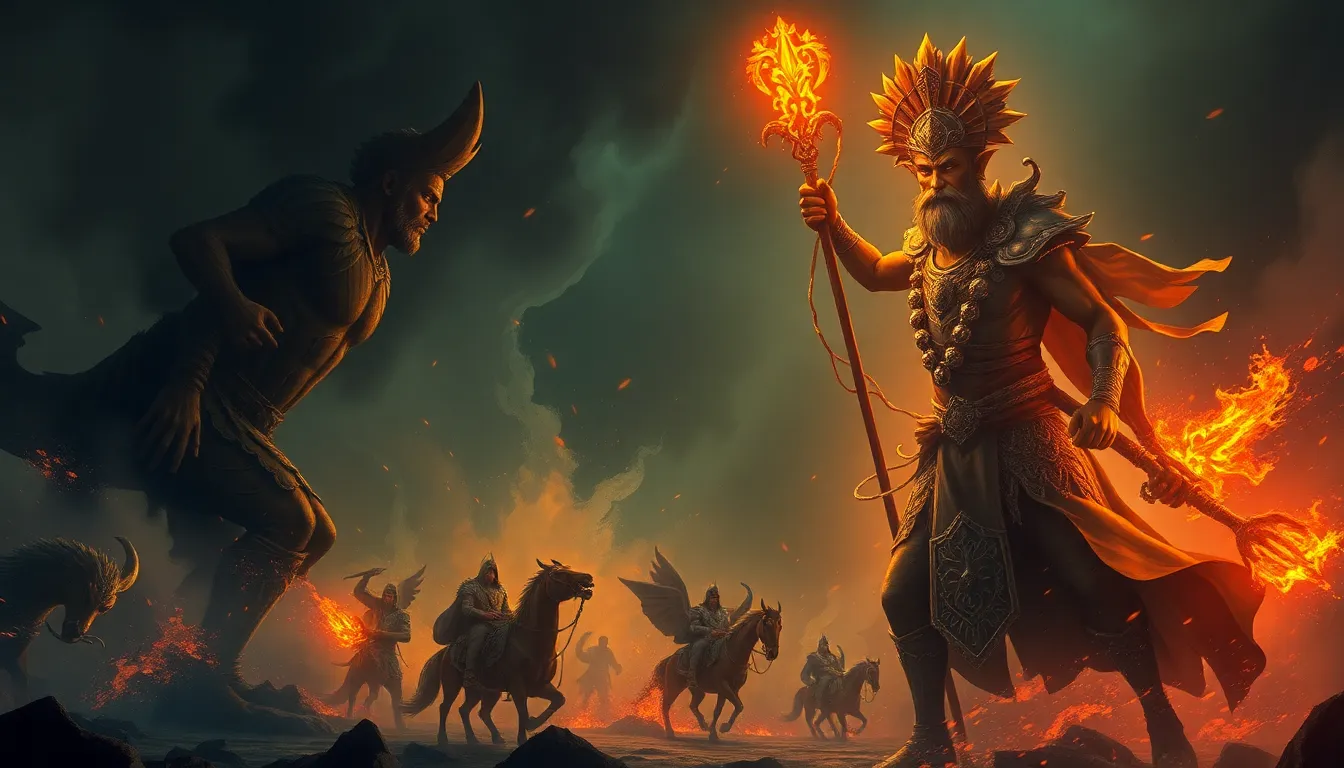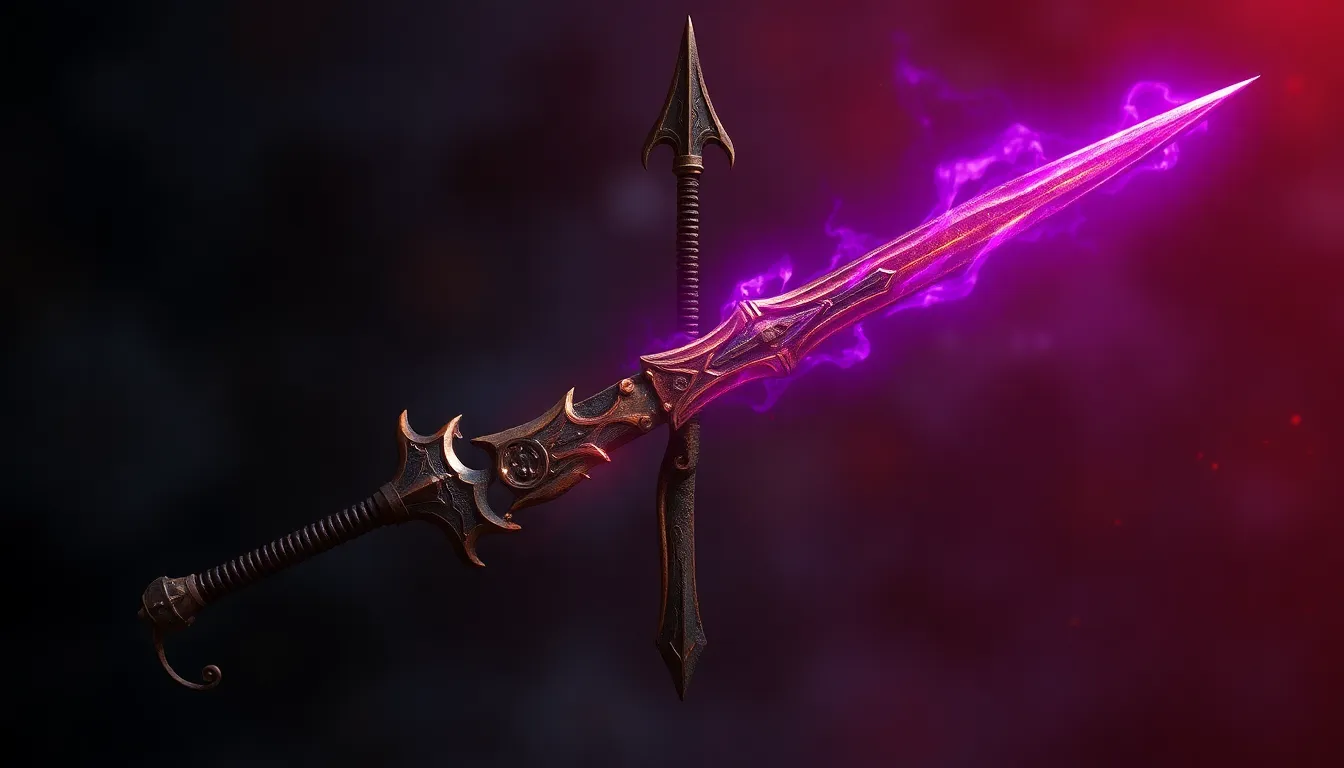The Enduring Power of Cultural Hero Myths in Society
Introduction: Defining Cultural Hero Myths
Cultural hero myths are narratives that celebrate individuals who embody the values, aspirations, and struggles of a society. These myths serve as a reflection of collective identity, illustrating what a community deems admirable and worthy of emulation. From ancient tales of gods and demigods to modern stories of activists and fictional characters, hero myths play a crucial role in shaping societal norms and values.
This article explores the significance of cultural hero myths across different epochs and cultures, highlighting their enduring relevance in contemporary society. By examining historical contexts, common themes, psychological appeals, and modern representations, we aim to understand how these myths continue to resonate and influence our lives today.
Historical Context of Hero Myths
Hero myths have existed since the dawn of civilization, with ancient figures such as Hercules and Gilgamesh serving as archetypal heroes. These myths were not merely stories; they were foundational narratives that helped to define early societies. For example:
- Hercules: A symbol of strength and perseverance, Hercules’ twelve labors represented the struggle against overwhelming odds.
- Gilgamesh: The epic of Gilgamesh explored themes of friendship, mortality, and the quest for eternal life, reflecting the values of ancient Mesopotamian society.
These figures and their narratives shaped societal values, emphasizing virtues such as bravery, honor, and sacrifice. They provided a framework for understanding the human condition, establishing norms for behavior and leadership.
Common Themes in Hero Myths Across Cultures
Despite the diversity of cultures and contexts, many hero myths share common themes. These recurring motifs include:
- The Hero’s Journey: A narrative arc where the hero faces challenges, undergoes transformation, and ultimately returns home, changed.
- Sacrifice: Many heroes must give up something valuable, whether it be their lives, relationships, or dreams, in pursuit of a greater good.
- Transformation: Heroes often undergo significant personal growth, evolving through their experiences and trials.
These themes resonate deeply with human experiences, reflecting our aspirations, fears, and desires for growth and meaning in our lives.
The Psychological Appeal of Hero Figures
The allure of heroes can be examined through various psychological theories, notably Jungian archetypes. According to Carl Jung, heroes represent the “Self” and embody qualities that individuals aspire to achieve. The presence of hero figures in our narratives fulfills several psychological needs:
- Identification: People often identify with heroes, seeing aspects of themselves reflected in their struggles and triumphs.
- Motivation: Heroes inspire individuals to overcome their challenges and strive for greatness.
- Hope: In times of crisis, heroes symbolize hope and the possibility of change.
By embodying ideals and confronting adversity, heroes provide emotional support and motivation, making them integral figures in human psychology.
Cultural Heroes in Modern Society
In contemporary culture, heroes continue to emerge in various forms, including activists, athletes, and fictional characters. Notable examples include:
- Activists: Figures like Malala Yousafzai and Nelson Mandela have become symbols of resilience and courage in the fight for social justice.
- Athletes: Sports icons like Serena Williams and Muhammad Ali represent not only athletic prowess but also social advocacy.
- Fictional Characters: Characters like Harry Potter and Wonder Woman inspire audiences with their journeys of bravery and self-discovery.
These modern heroes influence social movements, shaping public discourse and identity, while encouraging individuals to engage in meaningful societal change.
The Role of Media in Shaping Hero Myths
The media plays a pivotal role in the propagation of hero myths, utilizing various platforms to shape perceptions of heroism. Films, literature, and social media contribute to the construction and dissemination of these narratives:
- Films: Blockbuster movies often portray heroes as larger-than-life figures, reinforcing cultural ideals of bravery and sacrifice.
- Literature: Books can explore complex character arcs, providing depth to the hero’s journey and moral dilemmas.
- Social Media: Platforms like Twitter and Instagram allow everyday individuals to share their stories of heroism, democratizing the concept of who can be considered a hero.
Case studies of popular media representations highlight how these narratives can inspire societal change, challenge norms, and redefine what it means to be a hero.
Critiques and Challenges to Traditional Hero Myths
While hero myths often celebrate idealized figures, there is a growing critique regarding the implications of flawed heroism. Emerging narratives challenge the traditional view of heroes by highlighting the complexity of character:
- Flawed Heroes: Many contemporary narratives explore heroes who struggle with personal failings, emphasizing that heroism is not devoid of imperfections.
- Anti-Heroes: The rise of anti-heroes in popular culture, such as Walter White from “Breaking Bad,” reflects a shift in how society views morality and heroism.
These alternative narratives encourage critical engagement with the concept of heroism, prompting audiences to consider the multifaceted nature of human experience.
Cultural Hero Myths and Social Change
Hero myths can serve as powerful catalysts for social change, inspiring movements for justice and equality. Historical and modern case studies illustrate this connection:
- Martin Luther King Jr.: His leadership in the Civil Rights Movement exemplified how a hero can mobilize communities for social justice.
- Greta Thunberg: As a young climate activist, she has become a contemporary hero advocating for environmental reform.
These figures not only inspire individuals but also galvanize collective action, highlighting the potential for hero myths to enact real-world change.
The Future of Hero Myths in a Globalized World
The dynamics of globalization and multiculturalism are reshaping hero myths, leading to a more inclusive and diverse representation of heroes. Key trends include:
- Global Heroes: Figures like Malala Yousafzai resonate across cultures, embodying universal values of courage and education.
- Digital Narratives: The internet allows for a proliferation of diverse hero narratives, giving voice to marginalized communities.
As we move further into the digital age, the transformation of cultural heroes will likely reflect a broader array of experiences and values, enriching the tapestry of hero myths.
Conclusion: The Lasting Legacy of Hero Myths
Cultural hero myths have a profound and lasting impact on society, shaping collective identities, values, and aspirations. As we navigate contemporary challenges, it is essential to critically engage with the heroes we celebrate, recognizing both their strengths and flaws. By doing so, we can ensure that our understanding of heroism remains relevant and reflective of the diverse human experience.
As we look to the future, the evolution of hero myths will continue to play a pivotal role in shaping our cultural narratives and inspiring generations to come.




